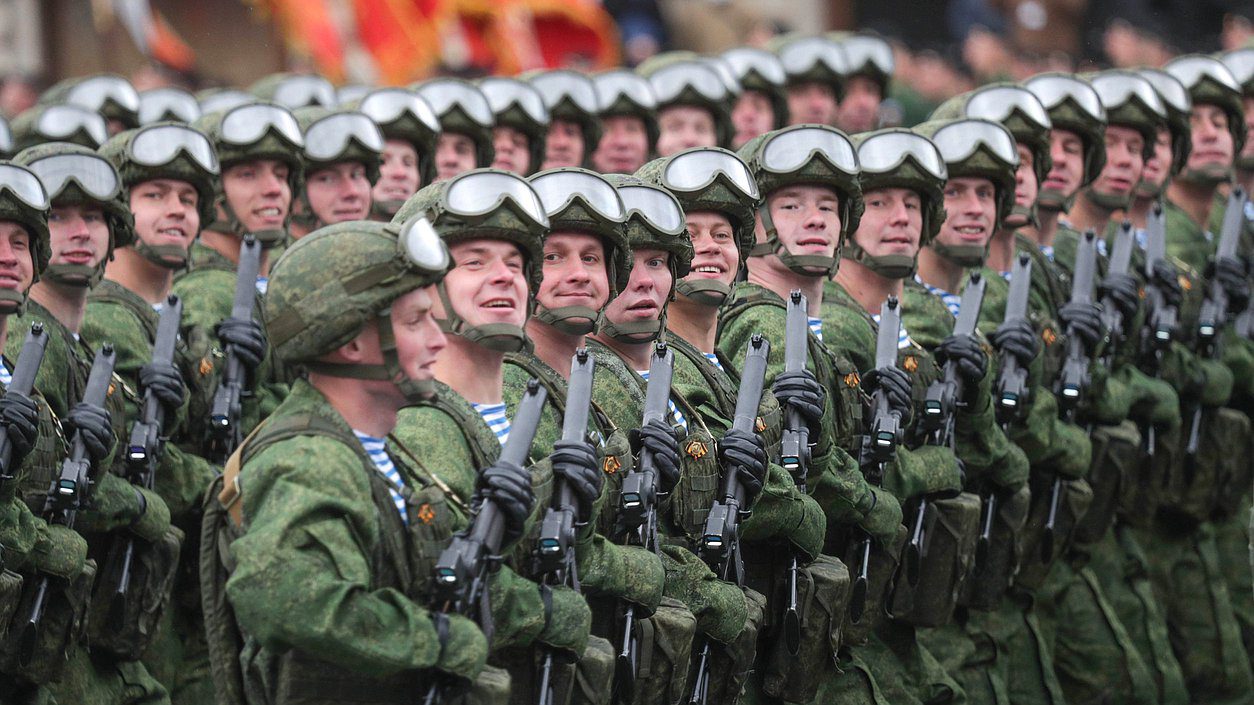Russian parliament votes on 2024 budget, favoring military and security spending. Cuts in the areas of health, education and the people’s economy raise alarm bells about a return to the 1990s.
On Friday (17/11), the State Duma (Russian parliament) is debating its third reading of the proposed state budget for 2024. Spending is expected to reach 36.6 trillion rubles (around R$2 trillion), with revenue of 35 billion.
The Russian government wants to cover the deficit of 1.6 trillion rubles (which corresponds to 0.9% of the country’s Gross Domestic Product) with loans and resources from the National Welfare Fund. These funds come from the income generated from oil and natural gas and the management of other resources.
According to analysts, the 2024 budget will be focused on military spending: 30% of shared spending – 10.8 trillion rubles or 6% of GDP – will go to the military. Another 3.4 trillion rubles will go to national security and security institutions.
Spending on social benefits is expected to rise from 6.5 trillion roubles to 7.7 trillion roubles (21% of spending) by 2024 – still below military spending.
Russian Finance Minister Anton Siluanov said during a meeting with the Duma Budget Committee that “victory” and “battlefront” are among the objectives of the budget proposal. Later, however, he assured that the budget should not be seen as being geared towards military spending, since “social issues take precedence in our spending”.
The figures, however, show that this is a half-truth. In absolute terms, spending in the social area is expected to increase by 1.4 trillion rubles if various sectors such as education, health services, social policies and sports are added. Even so, the share of such spending in the budget as a whole will fall from 31.7% this year to 29.9% in 2024.

Back to the 1990s?
The increase in military spending in the budget isn’t surprising considering the current war in Ukraine. However, the proportions of the increase in 2024 compared to 2023 were unexpected for many economists.
This opinion is reinforced by Andrei Yakovlev, one of the founders of the Moscow School of Economics and a researcher at the Davis Center for Russia and Eurasia Studies at Harvard University.
The expert believes that it is quite likely that a devaluation of the ruble will become necessary to fill the budget. This could lead to serious macroeconomic risks associated with a rise in inflation as early as 2025.
For Yakovlev, the situation is reminiscent of the 1990s, when the state printed money to pay wages, which led to a classic inflationary spiral. “The Kremlin makes us fear the terrible 1990s, but that’s where they’re taking the economy at the moment,” he told DW.
It is also expected that the Russian authorities will try to replace the loss of income from declining oil and gas exports due to international sanctions, among other ways, with domestic resources.
“The authorities are openly talking about collecting additional taxes. This applies to both businesses and the population,” says Yakovlev.
Labor shortage
The economist also points out that budget cuts are planned in the areas of health, education and the people’s economy. “New road construction projects and the development of housing finance programs will most likely be curtailed,” he said.
The budget proposal for 2024 can be described as military-oriented, says Natalya Subarevich from Moscow Public University in an interview with DW. According to the specialist in socio-economic development, it would only be possible to speak of a war economy if there were mass nationalization and the adaptation of all sectors to the demand for weapons, which is not yet the case.
This year, according to Subarevich, the decline in the population’s income is likely to exceed that of last year. The sharp increase in monthly state benefits for poor families with children under 17 should contribute to this, as will the indexation of pensions and increases in salaries in the defense sector.
“Hundreds of thousands of mercenary soldiers and conscripts receive benefits that are quite large by Russian standards. In general, the population’s income is growing, but not for everyone,” he observes.
For Subarevich, a serious problem in Russia is the growing labor shortage, also due to the war effort.

Loss of “human capital”
“Almost a million men have disappeared from the real economy. Some have fled, others are in combat. According to demographic estimates, between 400,000 and 600,000 middle-class people with the best educational levels have left the country. Only a few have returned. Russia is losing ‘human capital’, which is what most governs development,” said Subarevich.
According to economist Alexandra Osmolovskaya-Suslina, despite the record sums earmarked for the military and security forces, social policies remain a high priority in the overall structure of government spending.
“Moreover, this budget proposal cannot be described as development-oriented,” she told DW.
The injection of money into the military-industrial complex will lead to GDP growth, but it will only remain a formal indicator. It cannot be seen as reliable evidence of increased prosperity for citizens.
*** Translated by DEFCONPress FYI Team ***
